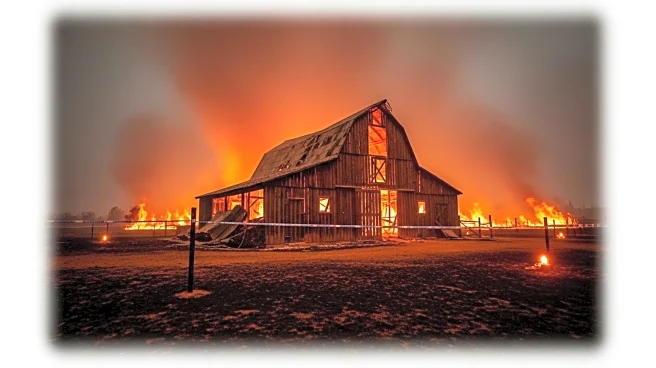What is the story about?
What's Happening?
Spain has experienced a severe wildfire season, with significant impacts on agriculture and tourism. The fires have burned 0.8% of the country's surface area, particularly affecting the north-west regions of Castilla y León and Galicia. Honey production has been severely impacted, with producers like José Antonio Bruña estimating a 50% loss in production due to the destruction of flora necessary for bees. Livestock farmers have also suffered, with losses of cattle and increased insurance costs. The COAG national farmers' association estimates damages to the industry at €600 million. Tourism, a major economic sector, has also been affected, with evacuations in areas like Cádiz and reduced capacity in rural tourism hotspots.
Why It's Important?
The wildfires have significant economic implications for Spain, affecting both agriculture and tourism, two key sectors. The loss in honey production and livestock impacts rural economies, while increased insurance premiums add financial strain. The tourism sector, contributing 13% to Spain's GDP, faces challenges in recovering its image and attracting visitors back to affected areas. The fires highlight the need for improved disaster management and resilience planning, as well as potential government intervention to support affected industries.
What's Next?
Farmers and tourism operators are negotiating with regional governments for financial aid to recover from the damages. The insurance industry may adjust premiums, impacting future costs for farmers. There is a need for strategic planning to enhance resilience against future wildfires, including infrastructure improvements and better land management practices. The tourism sector will need to rebuild its image to attract visitors back to affected areas.
Beyond the Headlines
The wildfires underscore the broader challenges posed by climate change, with increased frequency and intensity of such events. There is a need for sustainable practices in agriculture and tourism to mitigate future risks. The situation also raises questions about the adequacy of current insurance models and the role of government in disaster recovery.
















